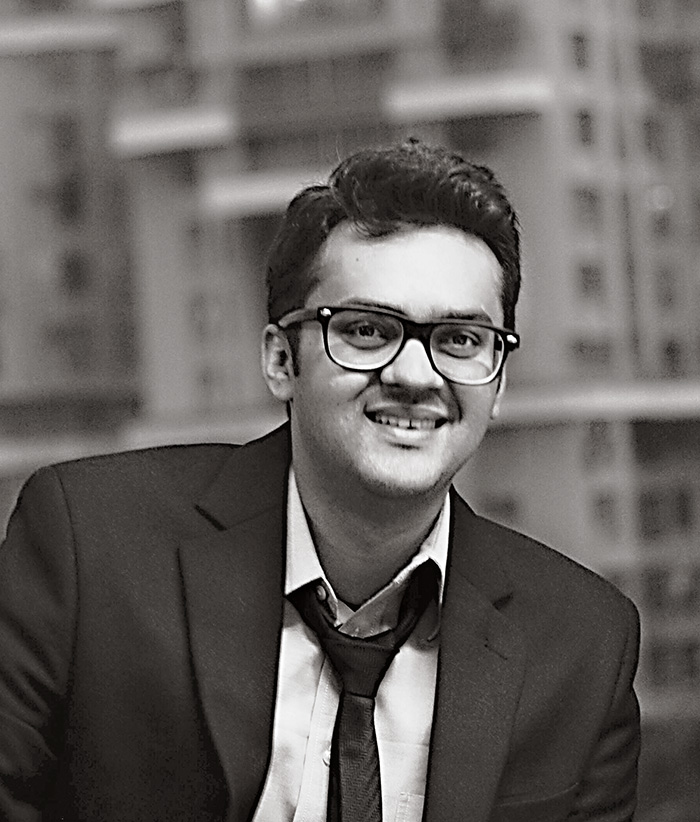Age: 27
MS Biomedical Engineering ’12
Founder CEO at Ycenter
Dhairya Pujara says the problem with his millennial generation is the focus on educating the mind, but what about the heart? Through his startup Ycenter, he chaperones college students to developing countries to build empathy through real-world problem solving.
“Here is my business card,” says 27-year-old Dhairya Pujara ’12. “And on the back is my story.”
A few short sentences summarize Pujara’s life: Born in India. Grad school in the United States. Quit desk job on first day. Went to Africa. Made an impact. Started Ycenter. Still learning.
What the card doesn’t mention, though, is the day in a rural Mozambique hospital when Pujara watched a man die. Pujara was there as part of a biomedical international service program through Drexel; he was there to make a difference, he says. The man was choking on his own blood and needed an aspirator, but the hospital had lost electricity earlier that day, and the generator was broken.
Surely Pujara, with a newly minted master’s degree in biomedical engeineering, could fix the generator? Wrong. Yes, Pujara was educated, but he felt he didn’t have the necessary skills to help this man. And so he just stood there.
“After that, I was going to make sure that young graduates would never have to ‘just stand there,’ ever again,” he says. From that, his startup Ycenter was born.
Pujara came to Drexel in 2010, attracted to the University by the sight of two powerful words on Drexel’s website: translational research.“The University wants to invest in research that actually sees the light of day, and they want to take their research to market, and that’s the kind of guy I am,” says Pujara. “I like to do real stuff.”
When he graduated, he had a job lined up with a local health care information technology company. That’s the job he quit on day one. “I wasn’t right for the job,” he says matter-of-factly.
Still connected to Drexel, Pujara reached out to former professors and mentors for advice. One offered him an unpaid position working with an international program through Drexel’s School of Biomedical Engineering, Science and Health Systems that sends students to developing countries for months at a time to work at solving real-world problems. Pujara, dependent on a student visa that required him to be employed, jumped at the chance. That is how he ended up in a rural hospital in Mozambique.
It wasn’t long before he realized the program had problems.”Drexel had been sending students to Mozambique through this program for three years, and while much work had been done, it wasn’t measured,” Pujara explains. “Students come, and they do good work with good intentions, but then they leave and the project ends. The students’ work dies when they leave.”Another problem was lack of training for hospital staff. The facility was stocked with medical equipment, much of it donated by charities, but no one knew how to use it — or how to fix it, as Pujara learned when he watched a patient die soon after he arrived.So, Pujara set to work.“In five months, I fixed broken devices and created a training program for doctors to use the latest medical equipment, and teach others how to use it as well,” he says.
Now, he says, he wants college students to be able to do this same kind of lasting, capacity-building work, an experience that goes beyond classroom education. He’s doing it through his startup Ycenter, which took its first group of students to Mozambique last year.In two years, Pujara has expanded Ycenter’s reach in India and now in Philadelphia. The work in struggling communities is finished, he says, “when they don’t need you anymore.”
— Katie Clark


